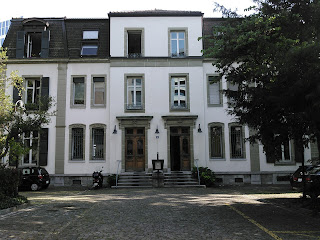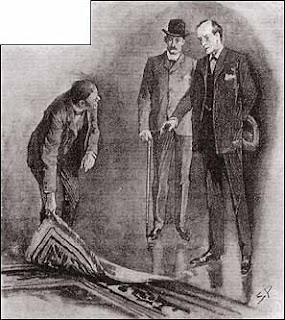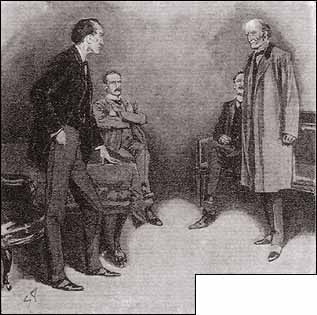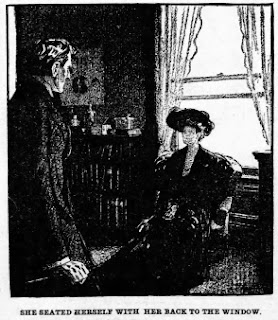The story is set on the precipice of a fictional global war, but it was published in The Strand Magazine in September of 1917, by which time Britain and her allies were hip-deep in World War I. Following the conclusion of the Audible version of the story, the narrator, of course, launched into a discussion of the myriad parallels that exist between "His Last Bow" and the real geopolitical circumstances surrounding World War I. I was less convinced, so I looked a little deeper, just to make sure the narrator had not taken too much poetic license. It turns out that most people who have written about the story consider it to be an instrument of propaganda intended to elevate British morale.
As a historian, I had to ask myself why British morale would have needed a boost in 1917. If anything, the tide of the war in 1917 would have been enough on its own to boost morale. In January of 1917, the British intercepted the Zimmermann Telegram, an effort on the part of the Germans to entice Mexico into the war in exchange for Texas, Arizona, and New Mexico – should Mexico’s entrance into the war result in a victory for Germany and its allies. On February 3, 1917, America severed diplomatic ties with Germany. On February 24th, the British passed the Zimmermann Telegram to the United States, effectively reversing America’s isolationist attitude toward the war, and by March of 1917 the British had captured Baghdad. In April of 1917, America officially entered the war, and Greece quickly followed that example in June.
As a historian, I have the benefit of hindsight. Thus, I know that this timeline of positive circumstances would soon (relatively) culminate in the end of the war. While the British could not have known this, they would certainly have taken heart in having so much wind at their backs. In the interest of fairness, I should add that life for British civilians during World War I was brutal. Bombings, food rationing, labor strikes, conscription, inflation, and the inevitability of war weariness must all be considered. After all, the Germans were not the only ones to have fallen for the promise that the war would be over by Christmas of 1914. Still, there really is not anything about 1917 specifically that would have necessitated the publishing of "His Last Bow" as a propaganda tool for boosting British morale.
What is more likely is that Doyle was simply inspired by real-life events. The character Von Bork in "His Last Bow" seems remarkably haphazard and unsophisticated for a German spy, and the precautions that he fails to take are startling. In much the same way, Arthur Zimmermann, the German foreign secretary who sent the famous telegram that now bears his name, was careless in the precautions he failed to take. By 1917, Germany no longer had cables in the Atlantic, so Zimmermann had his message sent from Copenhagen to a relay station on the coast of England, making it an easy intercept for Room 40, the code-breaking arm of the British Admiralty. Zimmermann’s seeming indifference to the danger he was walking into (and his compatriots along with him) is just short of laughable, as is, at least in my opinion, the lackadaisical behavior of the fictional Von Bork.
But in some ways, my suspicious mind goes further than this. The victory that Holmes achieves in "His Last Bow" is too easy. Some have commented that writing about espionage just was not a strength for Doyle, hence the too-tidy solution. In much the same way, the interception of the Zimmermann Telegram seems to have been much too easy. Given the extremely serious-minded approach Germany took toward war, as well as the detail-oriented mindset they were famous for, even at the time, it seems unbelievable that the Zimmermann Telegram would be offered up on such a perfect little platter. Might Doyle’s story have been a warning to the Allies to not let their guard down? Perhaps a tongue-in-cheek way of saying, “Do not get distracted. Nothing is this easy. Watch out for the other shoe to drop!”? I have advanced similar thoughts regarding "The Bruce-Partington Plans," and of course there are no answers. It is, however, fun to think of Doyle as a much keener student of geopolitics (but perhaps not espionage) than he is given credit for.
.jpg)
.jpg)
.jpg)





































